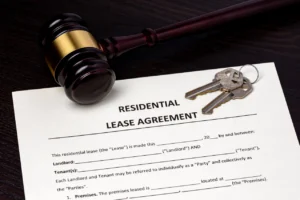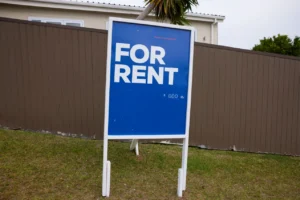Ensure equal housing opportunities for all individuals.

Why Are Fair Housing Laws Important in Multifamily Real Estate?
In multifamily real estate, adhering to fair housing laws is essential. By upholding these laws, you promote inclusive communities, prevent discrimination, and guarantee fair access to housing for all. It’s important to offer reasonable accommodations, avoid discriminatory practices, and provide equal opportunities.
Failure to comply can lead to legal consequences and harm your property’s reputation. Embracing fair housing laws fosters diversity, respect, and trust among tenants. Understanding the significance of compliance training and the impact of fair housing regulations is crucial for maintaining professionalism and avoiding issues. Upholding these laws is key to creating a welcoming and equitable living environment.
Key Takeaways
- Promote inclusivity and diversity in housing communities.
- Prevent discrimination based on protected classes.
- Ensure equal housing opportunities for all individuals.
- Uphold property reputation and credibility.
- Build trust with tenants and enhance professionalism.
Fair Housing Laws Overview
In multifamily real estate, understanding the overview of Fair Housing Laws is vital for ensuring compliance and preventing discriminatory practices. The Fair Housing Acts, including the Civil Rights Act, protect individuals from housing discrimination based on specific characteristics such as race, color, national origin, religion, sex, familial status, and disability. These laws aim to provide equal housing opportunities for all individuals, regardless of their background.
Property owners must be aware of the protected classes under Fair Housing Laws to avoid discriminatory actions. It is important to offer reasonable accommodations and modifications to individuals with disabilities to guarantee that they have equal access to housing. Failure to comply with these laws can lead to legal consequences, including fines and damage to the reputation of the property.
To uphold Fair Housing Laws, property owners must implement proper advertising strategies, objective tenant screening processes, and staff training programs. These measures help prevent discrimination in multifamily real estate and promote a fair and inclusive housing environment for all individuals.
By adhering to Fair Housing Laws, property owners contribute to creating a community where everyone has the freedom to access suitable housing without facing discriminatory barriers.
Need Legal Help?
Chat with a real estate lawyer near you. It’s only $5 for a 1-week trial. Ask unlimited questions.
Impact on Multifamily Communities
The implementation of Fair Housing Laws in multifamily communities greatly influences the social fabric and accessibility standards within these residential settings.
By preventing discrimination based on protected classes such as race, disability, and familial status, Fair Housing Laws ensure equal housing opportunities and contribute to the creation of diverse and inclusive communities in multifamily real estate.
Compliance with these laws is essential not only for fostering a welcoming environment but also for avoiding legal repercussions, fines, and reputational damage that may arise from violations.
One key aspect of Fair Housing Laws in multifamily communities is the requirement to provide reasonable accommodations and modifications to promote accessibility for individuals with disabilities. This provision plays a significant role in promoting inclusivity and ensuring that all residents have equal access to the amenities and services within the community.
Property managers in multifamily real estate must prioritize training staff, implementing anti-discrimination policies, and maintaining meticulous documentation to uphold Fair Housing Laws. By doing so, property managers not only protect the rights of residents but also safeguard the reputation and integrity of the community as a whole.
Legal Obligations for Property Managers
Property managers have an important responsibility in upholding fair housing laws to prevent discrimination and guarantee equal housing opportunities for all tenants. Under the Fair Housing Act, property managers are legally obligated to comply with regulations that prohibit discrimination based on protected characteristics.
This includes race, color, national origin, religion, sex, familial status, and disability. Discriminatory actions, such as setting different rental terms or conditions, are strictly prohibited to make sure fair treatment for all tenants.
In addition to preventing discrimination in housing, property managers are required to provide reasonable accommodations or modifications for tenants with disabilities. These accommodations ensure that individuals with disabilities have equal access to housing and common areas within multifamily real estate properties.
Failure to provide these necessary accommodations can result in legal action, fines, and damage to the property manager’s reputation.
To fulfill their legal obligations, property managers must stay informed about fair housing laws and actively work to create an inclusive environment within their properties. By promoting equal housing opportunities and adhering to the regulations set forth by the Fair Housing Act, property managers play an important role in fostering diverse and inclusive communities in multifamily real estate settings.
Promoting Diversity and Inclusion
To actively promote diversity and inclusion in multifamily real estate, property managers must prioritize upholding fair housing laws that prevent discrimination based on protected characteristics. The Fair Housing Act prohibits discrimination based on race, color, religion, sex, familial status, and disability, ensuring that all individuals have equal access to housing opportunities.
By adhering to these laws, multifamily properties create a more inclusive and welcoming environment for residents from diverse backgrounds.
Compliance with fair housing laws not only fosters diversity but also enhances community dynamics within multifamily properties. A diverse tenant base contributes to a sense of belonging and mutual respect among residents, enriching the overall living experience. Upholding fair housing laws is essential in creating an equitable and respectful environment that values the differences among tenants.
Furthermore, promoting diversity and inclusion through adherence to fair housing laws can notably impact the reputation of property owners and managers. By demonstrating a commitment to providing equal housing opportunities and preventing discrimination, multifamily properties attract a broader range of tenants. This, in turn, enhances the property’s desirability and value in the market, establishing a positive reputation within the community.
Preventing Discrimination in Tenancy
Compliance with fair housing laws is vital in multifamily real estate to guarantee that discrimination based on protected characteristics is prevented in tenancy arrangements. The Fair Housing Act prohibits discrimination based on factors such as race, color, religion, sex, familial status, disability, and national origin.
Landlords in multifamily properties are prohibited from engaging in discriminatory practices like refusing to rent or applying different terms based on these protected classes. Particularly concerning disabled tenants, landlords must allow reasonable modifications to units at the tenant’s expense to ensure accessibility.
Failure to provide reasonable accommodations for disabled tenants or refusing modifications can result in legal consequences and violations of fair housing laws.
To prevent discriminatory practices, it is essential for landlords to understand and comply with the Fair Housing Act. Displaying the Fair Housing Poster in multifamily properties is mandatory to inform tenants of their rights and to emphasize the prohibition of discriminatory housing practices.
By adhering to fair housing laws and ensuring equal treatment for all tenants, landlords contribute to fostering an inclusive and discrimination-free environment within multifamily real estate.
Importance of Compliance Training
Understanding fair housing laws and the significance of compliance training is vital for ensuring equal housing opportunities and preventing discrimination in tenancy arrangements within multifamily real estate.
Compliance training plays a pivotal role in educating property managers and staff on their obligations under the Fair Housing Act, helping them navigate the complexities of tenant screening, advertising practices, and providing reasonable accommodations.
By investing in robust compliance training programs, real estate professionals can proactively mitigate the risk of discriminatory practices that could lead to legal action and fines.
Compliance training not only equips property managers with the knowledge to adhere to fair housing laws but also fosters a culture of inclusivity and diversity within multifamily communities.
By promoting awareness and understanding of fair housing regulations, training initiatives contribute to the creation of welcoming environments where all individuals have the opportunity to secure housing without facing prejudice or bias.
Furthermore, maintaining compliance with fair housing laws through effective training is instrumental in safeguarding the reputation of multifamily real estate entities. By upholding ethical standards and legal requirements, property managers can build trust with tenants, enhance their credibility in the industry, and demonstrate a commitment to upholding the principles of equal housing opportunities for all.
Frequently Asked Questions
Why Is the Fair Housing Act Important?
Ensuring housing equality through discrimination prevention is crucial. Tenant rights, inclusive communities, and legal protections are upheld by the Fair Housing Act. Racial diversity, accessibility standards, and fair housing enforcement promote fairness.
Compliance fosters a welcoming environment for all. Fair Housing Act’s significance lies in its role in safeguarding against discrimination, promoting diversity, and ensuring equitable access to housing opportunities for everyone.
What Are the 7 Personal Characteristics That Are Protected by the Fair Housing Act?
In multifamily real estate, the Fair Housing Act safeguards against discrimination types by protecting seven specific personal characteristics. These protected classes include race, color, national origin, religion, sex, familial status, and disability.
As a housing provider, you have legal obligations to guarantee equal opportunities, uphold tenant rights, grant housing access, prevent bias, and promote diversity within your properties. Understanding and complying with these guidelines fosters a fair and inclusive housing environment.
What Is the Fair Housing Act Summarize Its Impacts?
The Fair Housing Act, enacted in 1968, prohibits discrimination in housing based on various personal characteristics. It impacts multifamily real estate by promoting inclusivity, protecting rights, and enforcing compliance.
Awareness and education about the Act are essential to prevent discrimination. By ensuring enforcement, the Act fosters an environment free from discriminatory practices, promoting equal housing opportunities for all individuals.
What Is the Most Common Type of Fair Housing Discrimination?
Disability discrimination is the most vital type of housing discrimination. It involves refusing reasonable accommodations for disabled individuals. Fair housing laws protect against this, ensuring equal opportunities. Landlords must allow modifications for disabled persons.
The Fair Housing Act prohibits refusal of accommodations to promote inclusivity in multifamily real estate. It’s essential to address these issues to create accessible and fair housing environments for everyone.
Conclusion
To summarize, fair housing laws are the backbone of a thriving multifamily real estate community. By adhering to these regulations, property managers can guarantee a welcoming and inclusive environment for all tenants.
Remember, when it comes to fair housing compliance, it’s better to be safe than sorry. So, make sure to stay informed, educated, and proactive in upholding these important standards to avoid any legal pitfalls down the road.
Source: Multifamily Mentor













 Accessibility
Accessibility